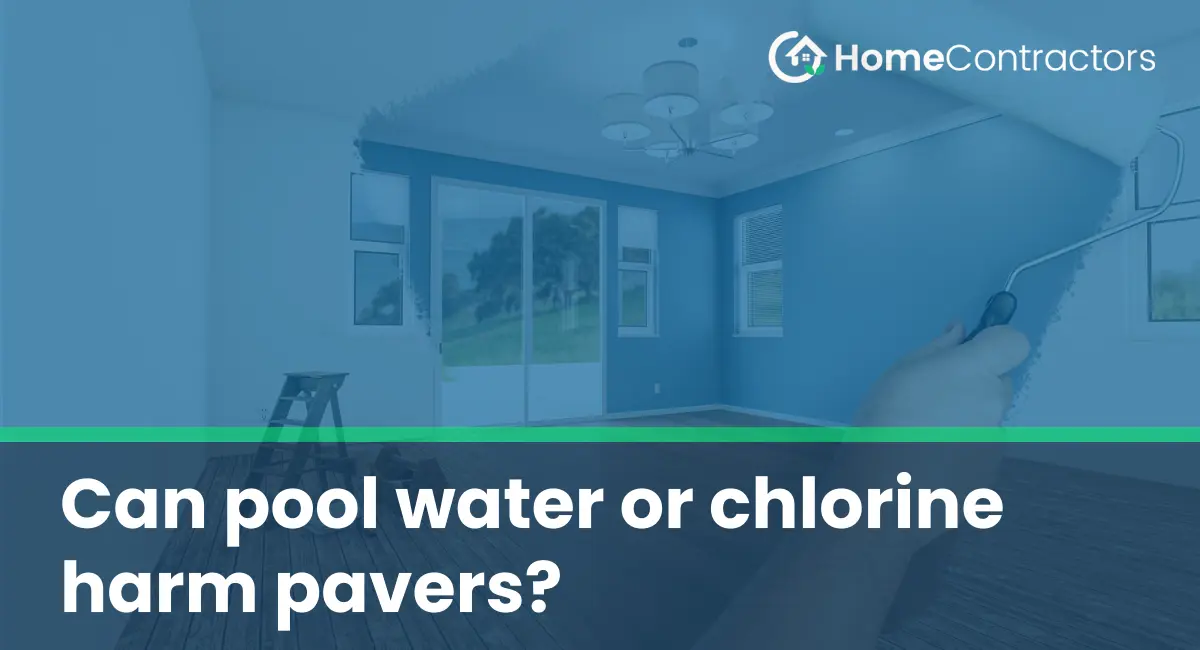Pavers are a popular choice for outdoor pathways, patios, and poolside areas due to their durability, versatility, and aesthetic appeal. However, when it comes to installing pavers in areas exposed to water, particularly pool water containing chlorine, some concerns arise. In this article, we will explore whether pool water or chlorine can harm pavers and discuss some preventive measures to maintain the longevity and appearance of your pavers.
Understanding Pavers and Their Composition:
Before diving into the potential effects of pool water and chlorine on pavers, let’s first understand their composition. Pavers are typically made from natural stone, concrete, brick, or a combination of these materials. These materials are chosen for their strength and ability to withstand heavy foot traffic, weather conditions, and time. However, they are not indestructible and can be susceptible to damage under certain circumstances.
Potential Harm from Pool Water:
When it comes to pool water, the primary concern is its chemical composition, specifically the presence of chlorine. Chlorine is commonly used in swimming pools to kill harmful bacteria and control algae growth, making the water safe for swimming. While beneficial for hygiene, chlorine can have adverse effects on pavers if not properly managed.
1. Discoloration:
Pool water containing chlorine may cause pavers to become discolored over time. This is more likely to occur with lighter-colored pavers, as chlorine can cause them to fade or turn yellowish. Although this can be a cosmetic issue, it may affect the overall appearance of your outdoor space.
2. Efflorescence:
Efflorescence is another potential consequence of exposure to pool water. It is the phenomenon of salt deposits forming on the surface of pavers, giving them a whitish or chalky appearance. Chlorine can contribute to the formation of efflorescence, especially when pavers absorb water containing high levels of chlorine and the salt deposits are left behind after evaporation.
3. Deterioration of Sealant:
If your pavers have been sealed, chlorine can also degrade the sealant, potentially leading to premature wear and tear. The sealant acts as a protective layer, guarding the pavers against stains, moisture penetration, and color fading. Prolonged exposure to pool water can weaken the sealant, making it less effective in preserving the pavers’ integrity.
Preventive Measures to Protect Pavers:
1. Regular Cleaning:
Regularly cleaning your pavers will help remove any chlorine residue or salt deposits, reducing the risk of discoloration and efflorescence. Use a mild detergent and water to scrub the pavers, avoiding harsh chemicals that can further damage them.
2. Sealing and Re-sealing:
Applying a high-quality sealant to your pavers can provide an extra layer of protection against chlorine damage. A sealer can help repel water, prevent stains, and minimize the effects of chlorine. It is important to note that sealants are not permanent and need regular reapplication, especially in areas exposed to pool water.
3. Proper Pool Water Maintenance:
Maintaining appropriate pool water chemistry is crucial to minimize potential harm to your pavers. Regularly test the pool water and adjust chlorine levels accordingly. By ensuring a balanced and properly chlorinated pool environment, you can mitigate the risks of discoloration and efflorescence caused by excessive chlorine exposure.
While pool water containing chlorine can potentially harm pavers, proper preventive measures can help maintain the integrity and appearance of your outdoor surfaces. Regular cleaning, strategic sealing, and careful pool water maintenance are key in protecting your investment. By understanding the potential risks and taking proactive steps, you can enjoy the beauty and longevity of your pavers for years to come, even in poolside areas.
